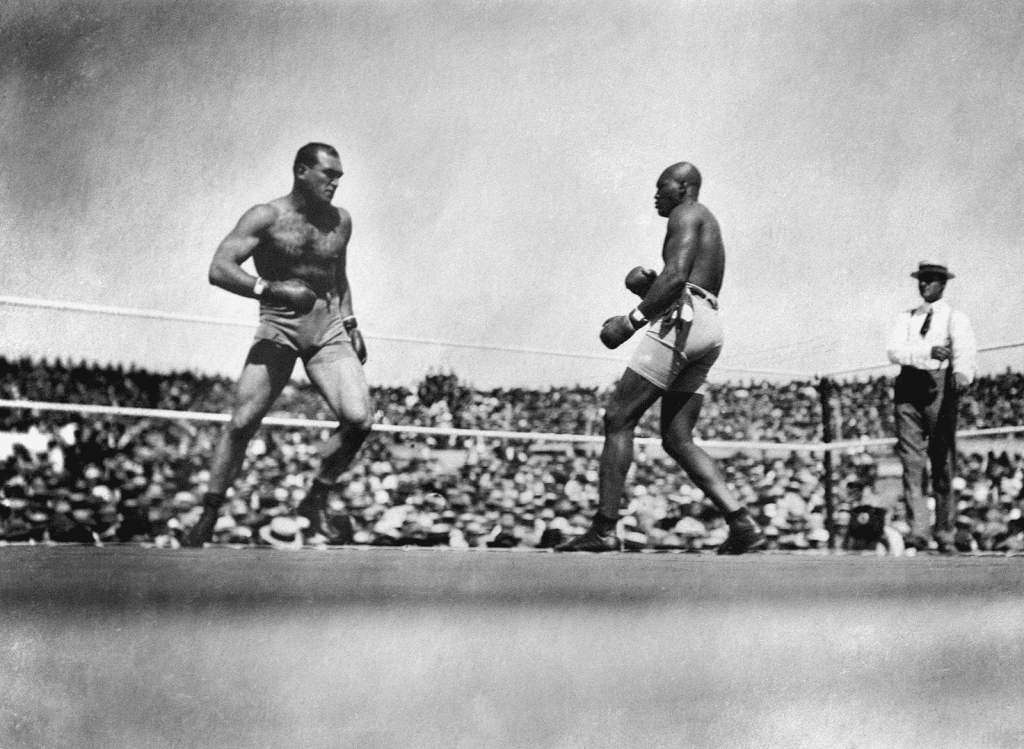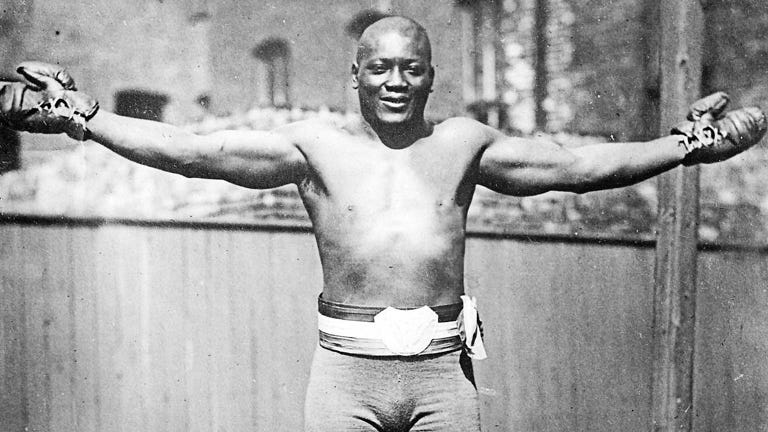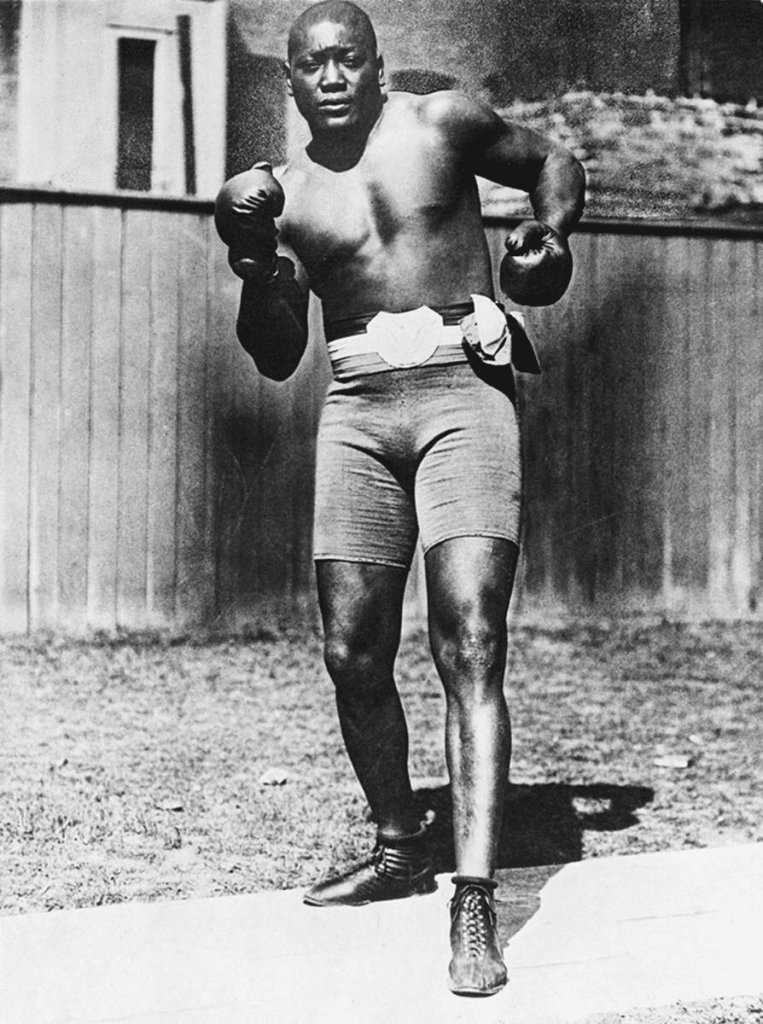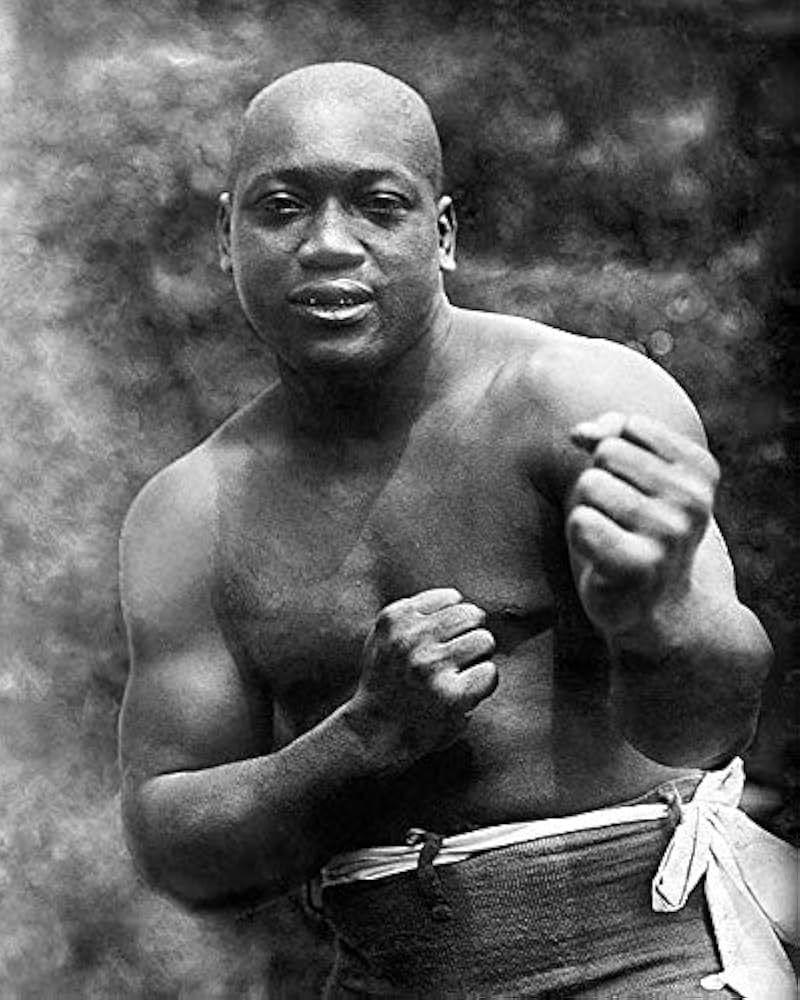Some men live quietly. Others, like Jack Johnson, stomp through history so loudly that their footsteps echo for generations. More than just a heavyweight boxing champion, Johnson was a walking revolution a defiant symbol of pride, power, and poise during one of the most racially charged eras in American history. He didn’t just fight opponents; he fought societal norms, challenged injustice, and lived life entirely on his own terms.
Even when faced with a $100 speeding ticket a hefty sum in the early 1900s Jack’s response became legendary. He handed the officer a $200 bill and said, “Keep the change. I plan to come back the same way.” It wasn’t arrogance it was a mic drop.

Breaking Barriers in the Ring
Born in 1878 to formerly enslaved parents in Galveston, Texas, Jack Johnson had every reason to play it safe in a deeply segregated society. But that wasn’t in his DNA. He rose through the boxing ranks at a time when Black boxers were often barred from fighting white opponents. Still, Johnson bulldozed through the system with sheer talent, eventually becoming the first Black world heavyweight boxing champion in 1908.

His victory was more than personal it was political. His dominance in the ring shattered myths of white superiority, prompting what was called the “search for the great white hope,” a nationwide campaign to find a white boxer who could dethrone him.
Spoiler: They couldn’t.
Video:
Jack Johnson | Black Boxer Who Lived Without Fear
A Champion with Swagger
Jack Johnson didn’t just win he did it with style. He smiled during matches, taunted his opponents, and often dodged punches with an ease that made it look like ballet. He drove luxury cars, wore fine tailored suits, dated white women (which infuriated racists), and refused to shrink himself for the comfort of others.
That speeding ticket? It wasn’t about the money. It was about the principle. Johnson was fined $100 an enormous fee in the early 20th century for speeding. But instead of apologizing or pleading his case, he pulled out $200 and told the officer, “I’m coming back the same way.” It wasn’t just a flex. It was a statement: You can fine me, but you won’t control me.

The Price of Defiance
Of course, the world didn’t let Jack Johnson live free without consequences. In 1913, he was convicted under the Mann Act for allegedly transporting a white woman across state lines “for immoral purposes” a charge widely recognized as racially motivated and based on his relationships, not actual wrongdoing.
He fled the country, living in exile for years. But even in exile, he continued to fight, box, and live life on his terms.
Video:
How Jack Johnson Became The BOLDEST Man In Boxing History
Legacy Beyond the Ring
Jack Johnson’s life wasn’t perfect, and his defiance came with personal costs. But his impact cannot be overstated. He paved the way for athletes like Muhammad Ali, who admired Johnson’s boldness, and countless others who followed in his wake.
In 2018, more than 100 years after his controversial conviction, President Donald Trump issued Johnson a posthumous pardon finally acknowledging the injustice he endured.

More Than a Fighter
Jack Johnson wasn’t just a boxer. He was a movement. He stood in the face of oppression, refused to bow his head, and drove forward literally and metaphorically with full speed and a double dose of confidence.
That $100 speeding ticket? Just another mic drop moment in a life full of them.


